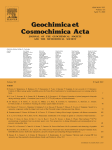I have around 70lbs of rock from old builds over the years. It's been in a box in my attic for probably 10-15yrs. I'm sure it's heavily bound with phosphates.
I've had it in brutes with RO water and been measuring with a hana ULR every couple days. The measurements are all over the place and I know hanna says to not use with RO water. Generally it's between .08 and .1 ppm.
Rather than continuously emptying and wasting all that water I decided to use lanthanum chloride.
My question is this:
If the Lanthanum Chloride binds to the phosphates and forms a precipitate, can I just say pour a whole bottle of LaCl in the bin and it will all bind with all the available phosphates over time?
So could I just pour a gallon in the bin and let it sit for a few weeks so either all the LaCl or all the phosphates would be the limiting factor?
I've had it in brutes with RO water and been measuring with a hana ULR every couple days. The measurements are all over the place and I know hanna says to not use with RO water. Generally it's between .08 and .1 ppm.
Rather than continuously emptying and wasting all that water I decided to use lanthanum chloride.
My question is this:
If the Lanthanum Chloride binds to the phosphates and forms a precipitate, can I just say pour a whole bottle of LaCl in the bin and it will all bind with all the available phosphates over time?
So could I just pour a gallon in the bin and let it sit for a few weeks so either all the LaCl or all the phosphates would be the limiting factor?




















